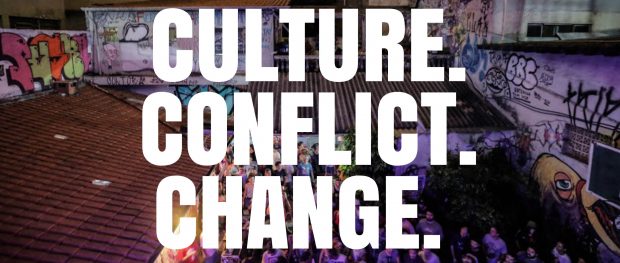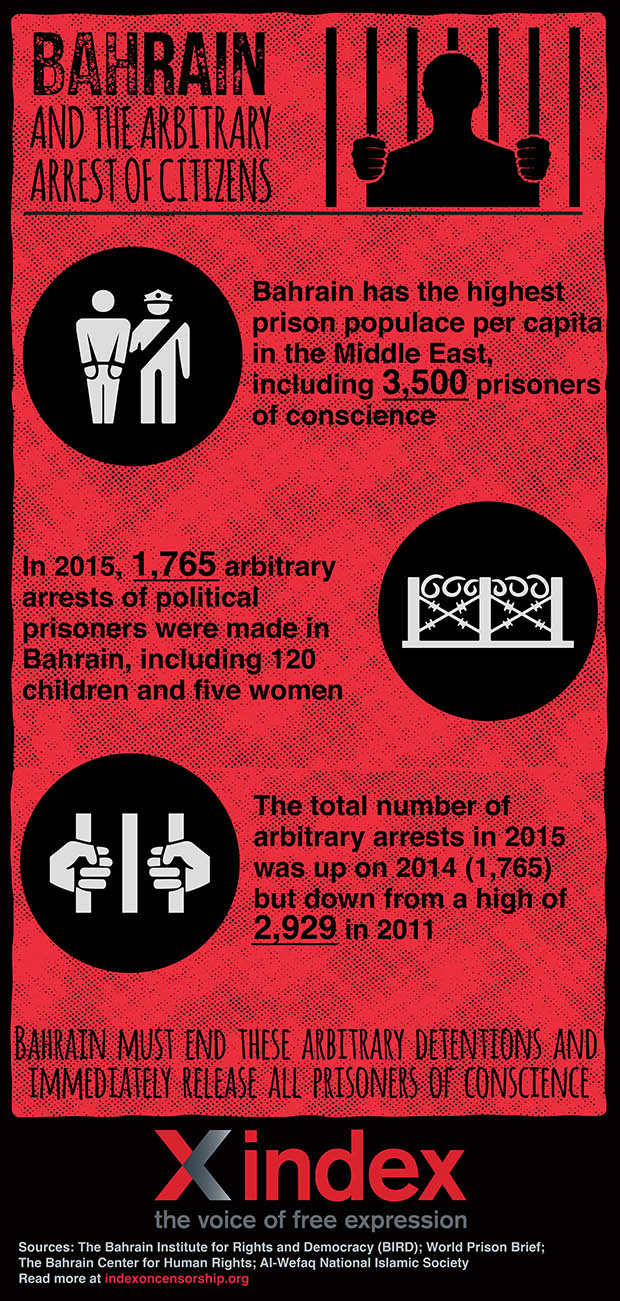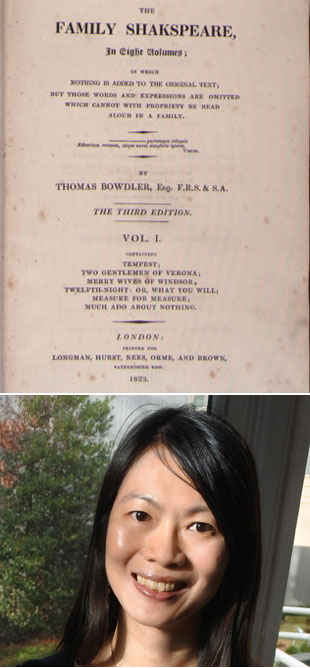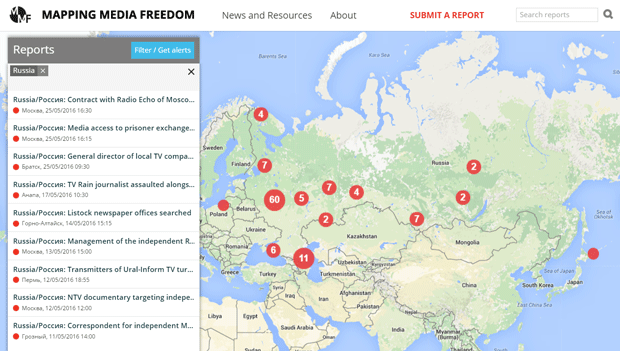3 Jun 2016 | Africa, Americas, Burkina Faso, Colombia, Europe and Central Asia, Events, Germany, mobile, Nigeria, South Africa, Uganda, United Kingdom, United States, Zimbabwe

Since its birth in the Bronx in the 1970s, hip hop has made its mark. Today, graffiti artists, MCs, breakdancers and DJs across the world are still using the medium to empower themselves, from women in Columbia and political movements in Burkina Faso, to aiding the fight for free speech in Zimbabwe and challenging religious stereotypes in the UK.
Index on Censorship has teamed up with In Place of War to create two unique full-day events that provide an opportunity to listen to, learn from and collaborate with 14 world-changing hip hop artists from eight different countries.

The Power of Hip Hop: Exchange / 8 July
A multi-disciplinary full-day academic conference that considers hip-hop’s role in revolutionary social, political and economic movements across the world.
The Power of Hip Hop: Exchange will explore the role, challenges and potential of hip-hop culture in facilitating positive social change in global contexts, and its role as a site of resistance and identity.
The day features academic panels, keynote papers, artist performances and practitioner presentations. This event harnesses In Place of War’s vast international network of grassroots artists and University of Manchester origins, to explore issues including hip hop and gender, race, religion, commerce, and conflict.
When: 8 July 2016, 10.00 – 18.30 (registration 9.30)
Where: Richmix, London (map)
Tickets: £45/£36 concessions – lunch, refreshments and delegate packs included (buy online)
Promo Code: “hiphop15” (£15 ticket). Can be redeemed online at checkout, over the phone or at the box office.

The Power of Hip Hop: Live / 9 July
A day of TED-style talks and live performance. Join 14 of hip hop’s most revolutionary artists from across the world for a mix of music, dance, rap, DJing, VJing, exhibitions and satire.
From local grassroots initiatives to multi-national citizen movements, you’ll hear stories of how hip hop is changing the world first-hand. You’ll encounter the artists performing live. And you’ll have chances to meet the speakers throughout the day, before a DJ set and drinks to end it.
Featuring Index on Censorship’s inaugural Music in Exile fellow Smockey (Burkina Faso), Rodney P (UK), Zambezi News (Zimbabwe), Wade Waters (USA), Poetic Pilgrimage (UK), SYMBIZ (Germany), Shhorai (Colombia), Afrikan Boy (UK/Nigeria) and more.
When: 9 July 2016, 12.00 – 19.30 (doors 11.30)
Where: Richmix, London (map)
Tickets: £20/£15 concessions (buy online)
Promo Code: “hiphop10” (£10 ticket). Can be redeemed online at checkout, over the phone or at the box office.

3 Jun 2016 | Bahrain, Middle East and North Africa, mobile, News and features

Bahraini authorities this week released opposition activist Zainab Al-Khawaja, who had been imprisoned with her infant son since March. She had been convicted of insulting the Bahraini king after she ripped up a picture of him.
Al-Khawaja may now be out of prison — though she could be re-arrested at any time — but her father, Abdulhadi Al-Khawaja, is one of over 3,500 prisoners of conscience who remain in Bahrain’s jails. According to research by World Prison Brief, Bahrain has the highest number of prisoners per capita in the Middle East, with 301 people in jail per 100,000 people of its 1.3 million population (followed by Israel at 256).
Arbitrary detention is the imprisonment of a person without proper evidence that they committed a crime or a case in which there has been no proper due process. Last year, the Liberties and Human Rights Department (LHRD) of Al-Wefaq National Islamic Society recorded a total of 1,765 arrests by security services for reasons related to the opposition political movement, including the arrests of 120 children and five women.
The total number of arbitrary arrests last year was up on 2014 (1,765) but down on 2013 (2,192), 2012 (2,221) and 2011 (2,929).
The UN Working Group on Arbitrary Detention, a UN body consisting of five experts, has repeatedly concluded that Bahrain has violated several international standards of a fair trial. In September of last year, the group found the detention of the secretary general of Al-Wefaq National Islamic Society, Sheikh Ali Al-Salman — this month sentenced to nine years imprisonment — to be arbitrary and “falls under category II and III of the Working Group’s categories of arbitrary detention”.
The five categories of arbitrary deprivation of liberty, according to the UN group are: when it is clearly impossible to invoke any legal basis justifying the deprivation of liberty (I); when the deprivation of liberty results from the exercise of the rights or freedoms (II); when the total or partial non-observance of the international norms (III); when asylum seekers, immigrants or refugees are subjected to prolonged administrative custody without the possibility of administrative or judicial review or remedy (VI); and when the deprivation of liberty constitutes a violation of international laws for reasons of discrimination (V).
In 2013, the UN Working Group on Arbitrary Detention found the imprisonment of Index on Censorship’s Freedom of Expression Awards 2016 judge Nabeel Rajab (since pardoned) to be arbitrary, and, along with Index, called for his release.
Last year’s arbitrary arrests of prisoners of conscience in Bahrain included Mohammed Mahdi Alekri, a member of Al-Wefaq’s advisory board who was arrested on 4 January 2015 by security forces during a demonstration against the arrest of Al-Salman.
Also among those arrested was Sayed Sa’eed Isa, a member of The Martyrs Associate and father to Sayed Hashim Saeed, the 15-year-old boy killed during the security crackdown on demonstrations in Sitra late 2011.
The Bahraini authorities have continued to use arbitrary detention to silence political opponents and opposition supporters.
2 Jun 2016 | Magazine, mobile, Volume 45.01 Spring 2016
[vc_row][vc_column][vc_column_text]

American academic Alexa Huang explores how Shakespeare’s plays were edited to make them more acceptable to Victorians.
Shakespeare has been used to divert around censorship, “sanitised” and redacted for children, young adults and school use, and even used as a form of protest all over the world. While censors have reacted differently to Shakespeare (sometimes with a blind eye), self-censorship (by directors and audiences) is part of the picture as well.
Not all censors work in the capacity of a public official. Many censors are in fact editors, writers and educators who are gatekeepers of specific forms of knowledge. Julius Caesar, for example, is often deemed one of the more appropriate plays to teach and perform in American school systems, because the themes of honor, free will and principles of the republic (as opposed to more sexually charged themes in other plays) are considered inspiring and suitable in the educational context.
The themes in such plays as Romeo and Juliet (teen exuberance and sex), The Merchant of Venice (anti-Semitism), Othello (racism and domestic violence), and Taming of the Shrew (sexism) make modern audiences uncomfortable, but they compel us to ask harder questions of our world.
While Shakespeare has been a large part of American cultural life, the “Shakespeare” that is taught and enacted in schools has often been redacted and even censored. But this is not a new phenomenon. The history of bowdlerized Shakespeare goes back to the nineteenth century. To bowdlerize a classic means to expurgate or abridge the narrative by omitting or modifying sections that are considered vulgar.
In fact, the term “bowdlerized” comes from Henrietta “Harriet” Bowdler who edited the popular, “family-friendly” anthology The Family Shakespeare (1807) which contains 24 edited plays. The anthology sanitised Shakespeare’s texts and rid them of undesirable elements such as references to Roman Catholicism, sex and more. The anthology was intended for young women readers.
Multiple ambiguities in Shakespeare are replaced by a more definitive interpretation. Ophelia no longer commits suicide in Hamlet. It is an accidental drowning. Lady Macbeth no longer curses “out, damned spot” but instead she says “Out, crimson spot!” Prostitutes are omitted, such as Doll Tearsheet in Henry IV Part 2. The “bawdy hand of the dial” (Mercutio) in Romeo and Juliet is revised as “the hand of the dial.”
Contrary to popular imagination, censorship is not a top-down operation. Instead, it is often a communal phenomenon involving both the censors and the receivers who willingly accept the Shakespeare that has been improved upon. Family Shakespeare was itself a family project. Thomas Bowdler (1754-1825) worked with his sister Henrietta Bowdler to bowdlerize or clean up the classics. The subtitle of the volume states that “nothing is added to the original text; but those words and expressions are omitted which cannot with propriety be read aloud in a family.” Shakespeare is credited as the author, though Bowdler made clear the Bard needed quite some heavy-handed editing.
Ironically, Henrietta Bowdler was herself censored. Thomas Bowdler’s name appears on the cover. It took two centuries for Henrietta to be credited for the anthology, for obviously there is no way she could have admitted that she recognised the bawdy puns in Shakespeare, much less editing them out of Shakespeare. The Bowdlers are among the better-known “censors” in the nineteenth century who editorialised the classics including Shakespeare.
When laying out her editorial principles in the preface, Bowdler does not hesitate to criticise the “bad taste of the age in which [Shakespeare] lived” and Shakespeare’s “unbridled fancy”:
The language is not always faultless. Many words and expressions occur which are of so indecent Nature as to render it highly desirable that they should be erased. But neither the vicious taste of the age nor the most brilliant effusions of wit can afford an excuse for profaneness or obscenity; and if these can be obliterated the transcendent genius of the poet would undoubtedly shine with more unclouded lustre.
She further explains her motive in The Times in 1819, emphasising that the “defects” in Shakespeare have to be corrected:
My great objects in the undertaking are to remove from the writings of Shakespeare some defects which diminish their value, and at the same time to present to the public an edition of his plays which the parent, the guardian and the instructor of youth may place without fear in the hands of his pupils, and from which the pupil may derive instruction as well as pleasure: and without incurring the danger of being hurt with any indelicacy of expression, may learn in the fate of Macbeth, that even a kingdom is dearly purchased, if virtue be the price of acquisition
While censorship carries a negative connotation in our times, The Family Shakespeare did broaden Shakespeare’s audience and readership. While American schools continue to redact Shakespeare, they also infuse Shakespeare into the American cultural life in various forms.
Alexa Huang will be participating in the Index on Censorship magazine panel at the Hay Festival.
[/vc_column_text][/vc_column][/vc_row][vc_row][vc_column][vc_custom_heading text=”From the Archives”][vc_row_inner][vc_column_inner width=”1/3″][vc_single_image image=”91322″ img_size=”213×289″ alignment=”center” onclick=”custom_link” link=”http://journals.sagepub.com/doi/pdf/10.1080/03064229008534812″][vc_custom_heading text=”Bowdler revisited: Shakespeare
” font_container=”tag:p|font_size:24|text_align:left” link=”url:http%3A%2F%2Fjournals.sagepub.com%2Fdoi%2Fpdf%2F10.1080%2F03064229008534812|||”][vc_column_text]March 1990
Artist Jane Zweig discovers books burned in Boston and looks at how Romeo and Juliet has been censored in America.[/vc_column_text][/vc_column_inner][vc_column_inner width=”1/3″][vc_single_image image=”94784″ img_size=”213×289″ alignment=”center” onclick=”custom_link” link=”http://journals.sagepub.com/doi/pdf/10.1080/03064227508532458″][vc_custom_heading text=”Censoring Shakespeare” font_container=”tag:p|font_size:24|text_align:left” link=”url:http%3A%2F%2Fjournals.sagepub.com%2Fdoi%2Fpdf%2F10.1080%2F03064227508532458|||”][vc_column_text]September 1975
A Lithuanian stage producer was dismissed from his post after sending an ‘open letter’ to Soviet authorities protesting censorship in theatre.[/vc_column_text][/vc_column_inner][vc_column_inner width=”1/3″][vc_single_image image=”93836″ img_size=”213×289″ alignment=”center” onclick=”custom_link” link=”http://journals.sagepub.com/doi/pdf/10.1080/03064228508533832″][vc_custom_heading text=”Clampdown on drama” font_container=”tag:p|font_size:24|text_align:left” link=”url:http%3A%2F%2Fjournals.sagepub.com%2Fdoi%2Fpdf%2F10.1080%2F03064228508533832|||”][vc_column_text]November 2007
Livingstone Njomo Waidhura reports on drama taught in schools and whether Shakespeare is a suitable hero for Kenya. [/vc_column_text][/vc_column_inner][/vc_row_inner][vc_separator][/vc_column][/vc_row][vc_row][vc_column width=”1/3″][vc_custom_heading text=”The unnamed” font_container=”tag:p|font_size:24|text_align:left” link=”url:%20https%3A%2F%2Fwww.indexoncensorship.org%2F2017%2F09%2Ffree-to-air%2F|||”][vc_column_text]The spring 2016 Index on Censorship magazine celebrates the 400th anniversary of William Shakespeare’s death, looking at how his plays have been used around the world to sneak past censors or take on the authorities – often without them realising. Our special report explores how different countries use different plays to tackle difficult themes.
With: Jan Fox, György Spiró, Martin Rowson[/vc_column_text][/vc_column][vc_column width=”1/3″][vc_single_image image=”86201″ img_size=”medium” alignment=”center” onclick=”custom_link” link=”https://www.indexoncensorship.org/2016/02/staging-shakespearean-dissent/”][/vc_column][vc_column width=”1/3″][vc_custom_heading text=”Subscribe” font_container=”tag:p|font_size:24|text_align:left” link=”url:https%3A%2F%2Fwww.indexoncensorship.org%2Fsubscribe%2F|||”][vc_column_text]In print, online. In your mailbox, on your iPad.
Subscription options from £18 or just £1.49 in the App Store for a digital issue.
Every subscriber helps support Index on Censorship’s projects around the world.
 SUBSCRIBE NOW[/vc_column_text][/vc_column][/vc_row]
SUBSCRIBE NOW[/vc_column_text][/vc_column][/vc_row]
2 Jun 2016 | Mapping Media Freedom, News and features, Russia

In Russia, business interests are protected by the state. When human rights violations or environmental damage are reported, nepotism and corrupt dealings between officials and business usually plays a large role. In these cases, no matter how serious the allegations or how strong the evidence, business owners skirt trouble while journalists and bloggers face real problems.
When copper and nickel ore deposits were discovered on the banks of the Khopyor River near a nature reserve in the Voronezhskaya oblast in 2012, the Ural Mining and Metallurgic Company (UGMK) was selected to exploit the deposits. Local residents and environmentalists protested when the company began prepping the site for extraction. Opponents were convinced that the development would cause environmental damage to the reserve and the river. Despite the objections, regional authorities granted UGMK permission to proceed with the project. In summer 2013 protests turned violent with clashes between the protesters and police and security hired by the company.
Research conducted by environmental activists and journalists uncovered alleged ties between UGMK’s owners, Iskander Makhmudov and Andrey Bokarev, and Kremlin-connected businessmen including Gennadi Timchenko and Vladimir Yakunin, close friends of the Russian president Vladimir Putin. The investigators also disclosed the involvement of several European companies.
Following the disclosures, two local activists, Mikhail Bezmensky and Igor Zhitenev, who published the information were accused of attempting to solicit a bribe from the company in order to halt the protests. Both were arrested and jailed. One more blogger, who faced threats, fled Russia and received political asylum in the EU.
Local mass media controlled by the department of property relations of the Voronezh region began spreading the allegation that a group of outsiders was trying to destabilise the situation. A Volgograd MP and businessman Oleg Pakholkov, sponsored by UGMK, launched Khozyaistvo Chernozyemya, a weekly newspaper with a circulation of about 60,000.
The paper routinely devoted five or six pages to laudatory coverage of nickel mining on the Khopyor, while the public protests were presented as a dirty competitive technique, an anti-state provocation, or a personal PR campaign of the protest activists. Other articles were about the positive experience of the Ural Mining and Metallurgic Company, the benefit of the project for the regional economy and its environmental safety.
Despite the ongoing protests mounted by opponents and periodic disclosures of corruption revealed by independent investigations UGMK continues to work on extracting the ore. The local activists still hope that Russia’s economic crisis, the collapse of commodity prices and their protests will help them stop the mining.
The UGMK investigations is just one example of the potential risks that journalists and bloggers face when they start publishing about Russia’s businesses.
In fact, a considerable part of the media rights violations in Russia reported to Mapping Media Freedom are against journalists who are prevented from reporting about corporations.
Officials and Putin-connected business owners who have been named in the Panama Papers leak have so far received full protection in the Kremlin-backed media while independent journalists and bloggers who reported on the disclosures have been accused of “undermining Russian interests for Western money” and face legal charges.
Aleksei Navalnyi, an opposition leader and the author of dozens of high-profile investigations into misconduct and corruption committed by state corporations has been charged three times since 2012 with crimes that he has not committed, including defamation and fraud.
The state has almost officially recognised that Navalnyi has been persecuted for his investigations. In 2013 Vladimir Markin, a spokesperson for Russia’s investigative committee, told the pro-Kremlin newspaper Izvestia that accusations against Navalnyi would not have been raised had the blogger not “teased power”.
In the last two months, three cases of journalists being targeted by corporate interests have been reported to Mapping Media Freedom.
On 12 April, while covering truckers who were protesting against the actions of transport company Omega, its director Evgeni Rutkovski attacked journalist Anton Siliverstov. When Siliverstov asked Rutkovski to comment on the protest, Rutkovsky forced Siliverstov from the office. The journalist said he would record the incident on his phone, at which point Rutkovski snatched the journalist’s device, refused to give it back and called security.
Two days later, reporter Igor Dovidovich was assaulted by the head of Gaz-Service, a gas company he was investigating. His TV crew was also attacked by the firm’s employees.
The month ended with state oil company Rosneft filing a judicial complaint against BiznessPress for an article which, the firm said, is “false and represents baseless fantasies of journalists or their so-called sources”.
Without support from news organisations or media laws to look to for protection, bloggers are often more vulnerable than journalists. While those reporting these crimes are often defenceless, those committing them often benefit.







